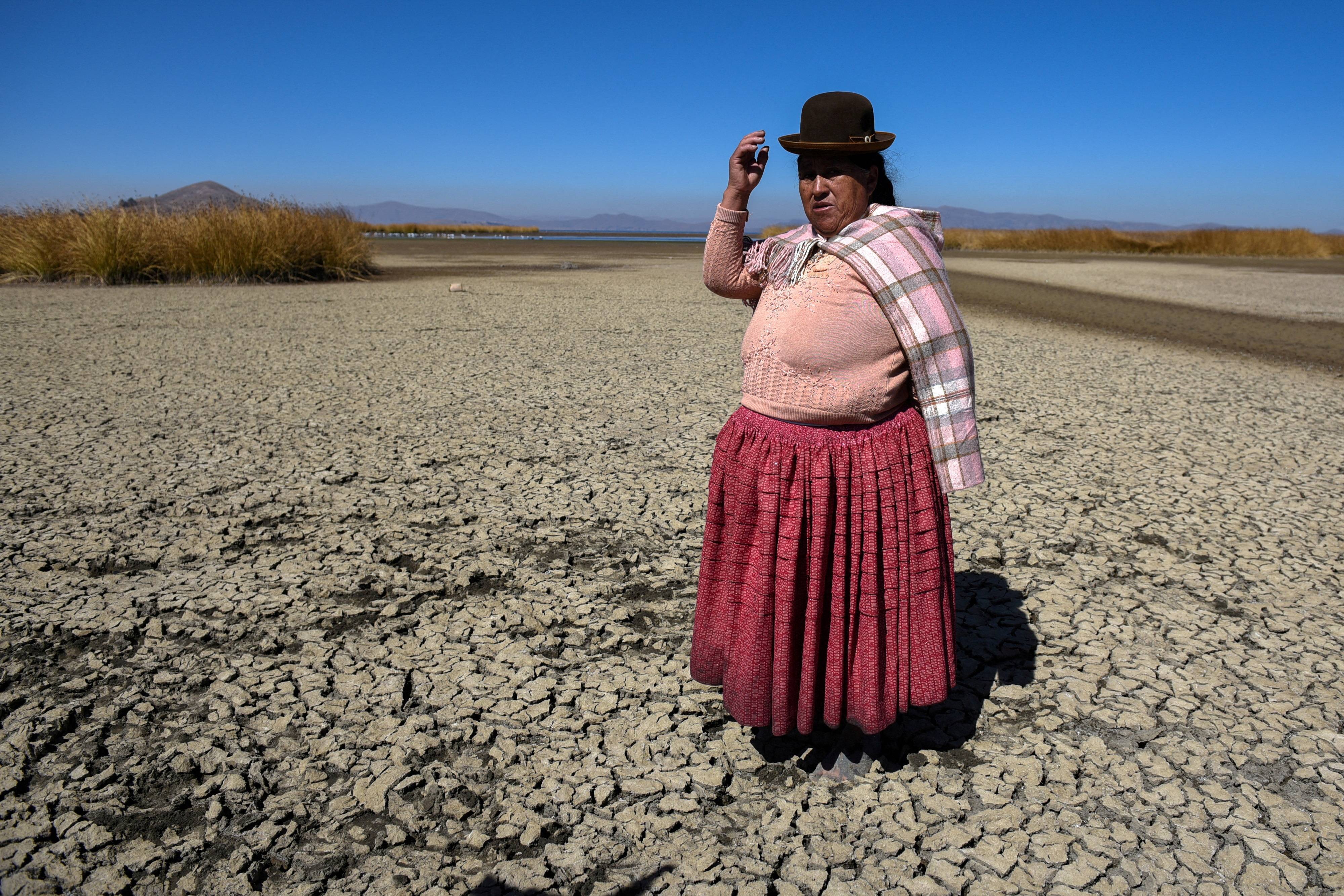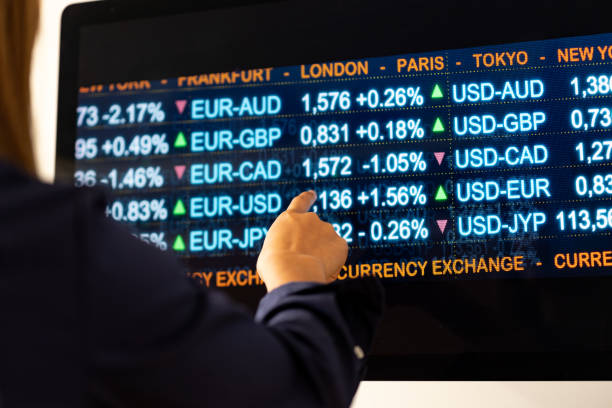South America's Lake Titicaca nears record low water level as El Nino bites
[1/2]Isabel Apaza shows the area of Lake Titicaca without water in drought season, in Huarina, Bolivia August 3, 2023. REUTERS/Claudia Morales/File Photo Acquire Licensing Rights
LIMA, Nov 3 (Reuters) - The water level at Lake Titicaca on the Peru-Bolivia border is edging towards a record low, exacerbated by the weather phenomenon known as El Nino that is expected to get still more intense in coming months.
The waters of the sprawling freshwater lake nestled in the Andes mountains have fallen an average 4 inches (10 cm) per month since April, said Milagros Quispe, an engineer with Peru's national meteorology and hydrology service Senamhi.
Severe drought conditions and unusually high temperatures have caused the shoreline to shrivel at Titicaca, South America's largest lake and the world's highest navigable body of water. The water level is now around 13 inches (33 cm) above its record low recorded in 1943.
The double whammy of extreme dryness and heat has led to higher-than-normal water evaporation, said Quispe. Over the past seven months, the lake's water level has fallen 29 inches (74 cm), according to Senamhi data.
Limited rainfall in the mountainous area had not been enough to stabilize the lake's shoreline, Quispe added.
El Nino causes major rainfall along Peru's Pacific coast but drought conditions in its highlands.
Last month, Peru's climate study office raised the probability that the intensity of this El Nino will be strong from December, up from a previous forecast that saw only moderate intensity.
Climate change is doubling down on the impacts from the natural El Nino phenomenon — layering heat on top of heat, or excess rainfall on top of excess rainfall.
That includes Titicaca. "The lake's basin and ecosystem have been modified as a result of global warming," said Quispe.
Reporting by Marco Aquino; Writing by David Alire Garcia; Editing by Rosalba O'Brien
Our Standards: The Thomson Reuters Trust Principles.
How do futures traders review their trading?
Futures trading is a form of financial speculation that involves buying and selling contracts that represent the future delivery of an asset, such as a commodity, a currency, an index, or a stock. Futures traders aim to profit from the price movements of the underlying asset, without actually owning
Futures night trading hours
Futures are contracts that obligate the buyer or seller to exchange an asset or commodity at a specified future date and price. They are used for hedging, speculation, and arbitrage purposes in the global market. Futures can be based on various underlying assets, such as currencies, commodities, ind
How can futures efficiently increase the success rate of intraday trading?
Intraday trading is a form of trading that involves buying and selling securities within the same trading day, without holding any positions overnight. Intraday traders aim to profit from the short-term price fluctuations of the market, using various tools and strategies to analyze and execute trade
What are the factors that can affect how much money can be made in futures?
Futures trading is a form of financial speculation that involves buying and selling contracts that represent the future delivery of an asset, such as a commodity, a currency, an index, or a stock. Futures traders aim to profit from the price movements of the underlying asset, without actually owning









